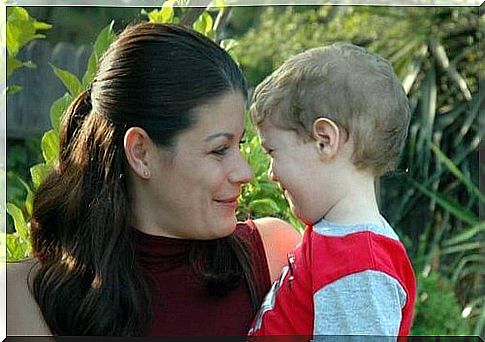The Effects Of Mom’s Voice On Her Little Brain – Being Parents
For many specialists, it’s a surprise to discover that mom’s voice can activate so many neural circuits in a child’s brain. In addition, neural connections can be so strong that each time they generate a reaction from the little one.
The child’s brain reacts to his mother’s voice
In an experiment conducted at Stanford University School of Medicine, researchers observed the brain activity of more than twenty children between the ages of seven and twelve. The objective of this experiment was to examine the effects of mom’s voice on her child’s brain.
Realizing that the mother’s voice helped the child to manage all emotional, social and linguistic processes, specialists wanted to know more about the effects on the brain. All the children participating in the experiment therefore had a brain scan to find out how the different areas of the brain reacted to stimuli.

The researchers quickly noticed that the child’s brain was ruling very quickly at the voice of his mother. The stimulus activated not only the auditory cortex, the part of the brain that analyzes auditory information, but also areas of the brain relating to emotions and attachment.
Researchers have come to the conclusion that a child’s relationship and social interaction can be influenced by his mom’s voice.
Better neural connections
For best results, all twenty-four children participating in the experiment were raised by their biological mothers. They had no developmental disabilities and had an IQ greater than 80. For the purposes of the study, each child had a brain scan during which he listened to a recording of his parents’ voices speaking. random words.
According to the results, the child identifies his mother’s voice in 97% of cases. As soon as the voice is recognized, the stimulus activates many areas of the brain.
These are surprising results. Indeed, specialists did not know that a mother’s voice could influence her child’s brain system to such an extent. In addition, experience shows that the little one is able to react as well to his mother’s instructions as to his affection.

A mother’s voice has such an impact on her little one’s brain that it generates better neural connections than any other stimulus, which can help the child communicate, form social bonds, and develop habits for interact with those around them.
This experience should lead to others. It could be interesting to study the effects of the mother’s voice on memory, on the brain of a child suffering from attention disorders or on social communication between children. The Stanford researchers would particularly like to look at the question of autism and other disorders.










